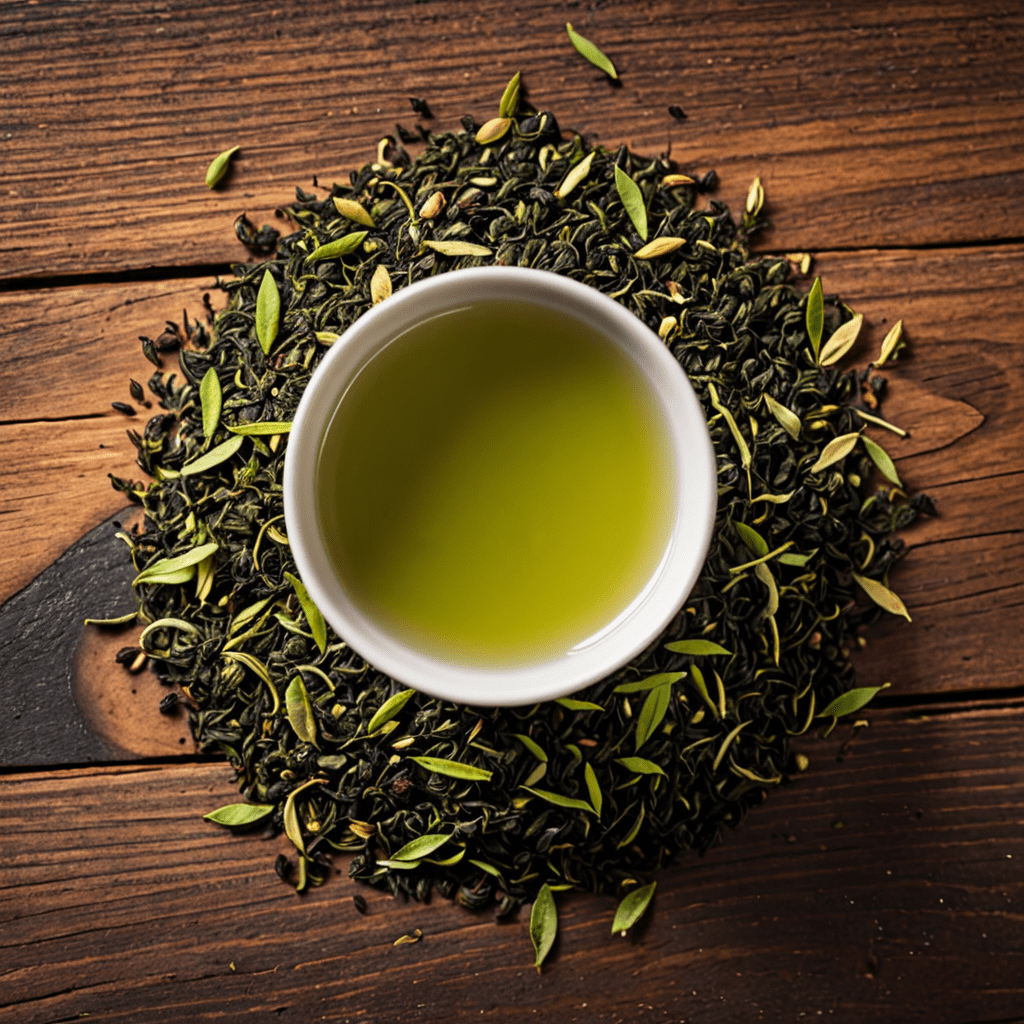Matcha and Joint Health: Green Tea's Role in Mobility
I. Introduction
Matcha, a vibrant green powder crafted from finely ground green tea leaves, has garnered significant attention for its potential health benefits. One promising area of research focuses on the impact of matcha on joint health and mobility. This article explores the role of matcha in promoting joint well-being and examines the latest scientific evidence supporting its efficacy.
II. Understanding Matcha and Its Properties
Matcha embodies the essence of green tea, offering a concentrated source of its beneficial compounds. Its distinct emerald hue and rich flavor can be attributed to the unique way the tea leaves are cultivated and processed. Matcha plants are shaded from sunlight during the last few weeks of growth, fostering the production of chlorophyll and antioxidants. During processing, the entire leaf is ground into a fine powder, ensuring that the full spectrum of nutrients is preserved.
III. Matcha and Joint Health: Key Findings
Studies have revealed promising associations between matcha consumption and improved joint health. Researchers have identified several compounds within matcha that play pivotal roles in promoting joint function and alleviating discomfort:
Antioxidants: Matcha is a potent source of antioxidants, particularly catechins, known to combat oxidative stress and protect cells from damage.
Polyphenols: Polyphenols, another class of antioxidants found in matcha, possess anti-inflammatory properties that support joint health.
IV. Benefits of Matcha for Joint Mobility
1. Anti-inflammatory Properties
Matcha's anti-inflammatory compounds, such as catechins, help reduce inflammation in the joints, a primary cause of joint pain and stiffness. This anti-inflammatory action supports joint mobility and improves range of motion.
2. Antioxidant Effects
Oxidative stress is a significant factor contributing to joint deterioration. Matcha's abundant antioxidants, particularly epigallocatechin gallate (EGCG), combat free radicals, protecting joint tissues from damage and preserving their integrity.
3. Chondroprotective Nature
Chondrocytes are cells essential for maintaining healthy cartilage, the protective cushion between bones. Matcha has been found to possess chondroprotective properties, supporting chondrocyte health and promoting cartilage regeneration.
V. Mechanisms of Action
Matcha's beneficial effects on joint health can be attributed to various mechanisms:
Inhibiting cytokine production: Matcha's anti-inflammatory compounds reduce the production of pro-inflammatory cytokines, minimizing joint inflammation.
Protecting against collagen breakdown: Matcha's antioxidants prevent degradation of collagen, the primary protein in cartilage, maintaining joint strength and flexibility.
Promoting tissue repair: Matcha's chondroprotective properties stimulate the synthesis of collagen and proteoglycans, essential components for cartilage repair and regeneration.
VI. Research and Clinical Studies
Numerous research studies have explored the relationship between matcha and joint health. A 2019 study published in the journal "BioMed Research International" found that matcha consumption significantly reduced joint pain and stiffness in individuals with knee osteoarthritis. Another study, published in 2020 in "Nutrients," demonstrated that matcha's anti-inflammatory properties improved joint function and mobility in those with rheumatoid arthritis.
VII. Potential Dosage and Recommendations
The optimal dosage of matcha for joint health may vary depending on individual factors. Generally, consuming 1-2 cups of matcha tea per day is recommended for its beneficial effects. Matcha powder can be whisked into hot water or added to smoothies, baked goods, and other recipes.
VIII. Considerations and Safety
Matcha is generally considered safe for most individuals. However, excessive consumption may lead to side effects such as anxiety, insomnia, or digestive issues due to its caffeine content. Individuals with underlying health conditions should consult a healthcare professional before incorporating matcha into their diet.
IX. Incorporating Matcha into Your Diet
Matcha's versatility allows for easy incorporation into your daily routine. Enjoy matcha as a traditional tea, add it to smoothies or shakes, or use it as an ingredient in baked goods, desserts, and savory dishes. Matcha's distinct flavor profile adds a touch of sophistication and a boost of antioxidants to your meals.
X. Conclusion: Matcha as a Holistic Approach to Joint Health
Matcha, with its unique combination of anti-inflammatory, antioxidant, and chondroprotective properties, offers a holistic approach to supporting joint health and mobility. By incorporating matcha into your diet, you can harness its power to reduce joint discomfort, improve range of motion, and promote overall joint well-being.
FAQs:
1. How does matcha improve joint mobility?
Matcha's anti-inflammatory, antioxidant, and chondroprotective properties reduce joint pain, protect cartilage, and support tissue repair, improving mobility.
2. What is the recommended dosage of matcha for joint health?
Generally, consuming 1-2 cups of matcha tea per day is recommended for its beneficial effects.
3. Is matcha safe for everyone?
Matcha is generally safe for most individuals, but excessive consumption may lead to side effects due to its caffeine content. Individuals with underlying health conditions should consult a healthcare professional before consuming matcha.



